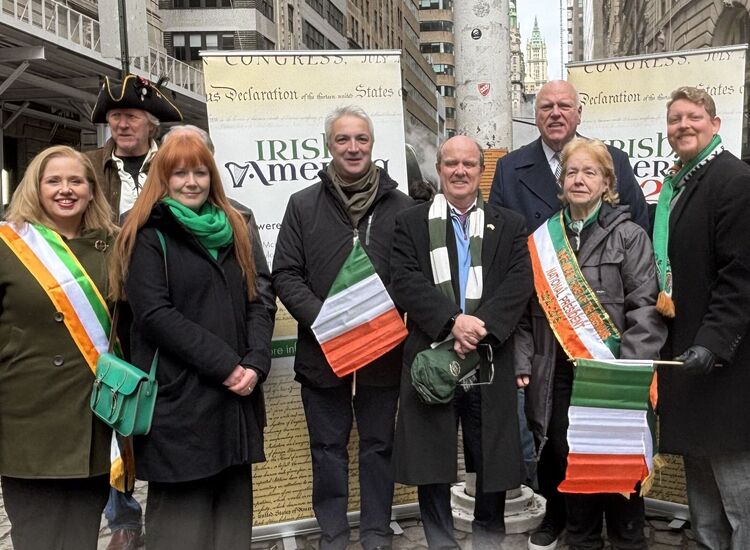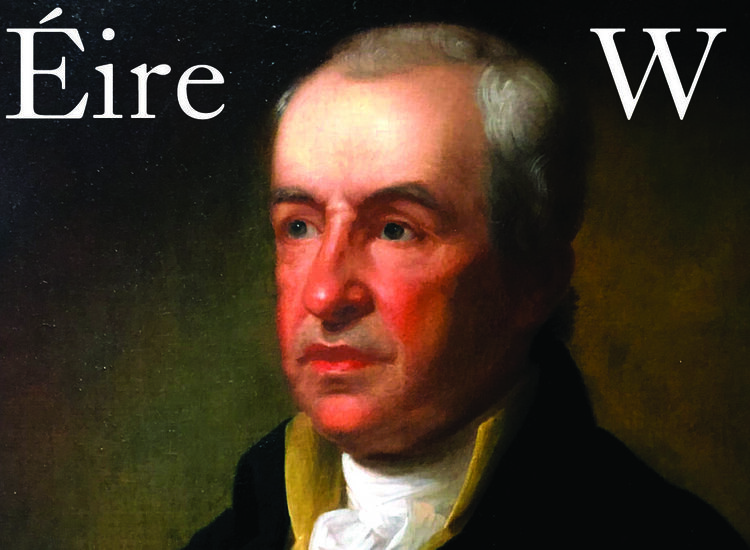Irish American organizations and political leaders are rowing in behind the Irish government's decision to take the British government to court over its controversial legacy legislation.
Congressman Brendan Boyle, long a critic of the legislation, said in a statement: “I strongly support the Irish government’s decision today to bring a legal case against the United Kingdom in the European Court of Human Rights (ECHR) in response to the enactment of the UK’s so-called Northern Ireland Troubles (Legacy and Reconciliation) Act.
"This legislation denies justice to thousands of families, across all communities in Northern Ireland, who were victims of violence during the Troubles.”
The Philadelphia Democrat added: “Over the past two years, I, along with several of my House colleagues, have repeatedly expressed to British Prime Ministers Johnson and Sunak our opposition to the substance and potential consequences of this legislation.
"In 2014, by way of the Stormont House Agreement, the British government promised to investigate lingering and controversial killings that took place during that period, including those committed in collusion with British state forces. The Northern Ireland Troubles (Legacy and Reconciliation) Act was a striking departure from that promise, and I am hopeful the ECHR can deliver justice to the Irish people.”
The Brehon Law Society of New York welcomed the decision by the Irish government saying in a statement that Tánaiste Mícheál Martin had "put it accurately when he said that the refusal of the British government to account for the legitimate concerns of others regarding the legislation left the Dublin government with few options."
The Brehon statement continued: The Dublin government, all political parties in Northern Ireland, the Labor party in Britain, and Irish Americans have long said that the legislation is incompatible with the Convention. Irish Americans, including the Brehons, have repeatedly voiced our concerns to the British government through Lord Jonathan Caine, the Parliamentary Under-Secretary of State for Northern Ireland.
"Despite our frustrations with the British government, we were comforted by the concerns expressed at the same time by Simon Coveney, T.D, former Minister for Foreign Affairs in Dublin. While the British government likely knows that the legislation is flawed, it always wanted to buy more time to delay uncomfortable litigation that exposed its role during The Troubles. The hope now is that the European Court will move quickly so that the victims in Northern Ireland can have their day in a court of law."
The President of the Brehon Law Society of Nassau County, Catherine Stanton, said: "The Brehon Law Society of Nassau County fully supports Irelands decision to mount a legal challenge against Britain over a new law giving conditional amnesties to former soldiers and militants involved in decades of violence in Northern Ireland.
"Many victims and their families have waited upwards of half a century for justice for atrocities committed against them during that time. To deny them this right would be tantamount to another crime against those who have already suffered far too much."
The Irish American Unity Conference said it "applauded and endorsed" the Irish government's decision.
It stated: "We are aware that this decision involved difficult legal and political considerations, but the decision to proceed is the only right one. Britain’s Legacy Act, more properly known as the Amnesty Act, is one of the cruelest acts to date by a government which has waged virtual war on its own citizens in the North of Ireland for decades.
"This Amnesty Act, designed primarily to grant immunity to British Army veterans and their operatives who brutalized, tortured, and killed citizens with impunity, has poured untold additional grief on families in the North who have campaigned for years to learn the truth about their loved ones.
"The decision to challenge this law affirms Ireland’s leading role as an advocate for human rights around the world, in sharp contrast to the UK’s long-standing and ongoing disdain for human rights and brutal treatment of its subjects, whether in the Middle East, Africa, the Caribbean, the American Colonies, China, or Northern Ireland."
The Irish National Caucus e-mailed news of the Irish government's decision to members of Congress and said that it commended the move.
Just prior to the Irish government's decision, Congressman Mike Lawler wrote a letter to the tanaiste and taoiseach urging them to take the case. The New York Republican was joined in what was a bipartisan letter by fellow GOP member Brian Fitzpatrick from Pennsylvania, and Democratic House member from Minnessota, Betty McCollum.










